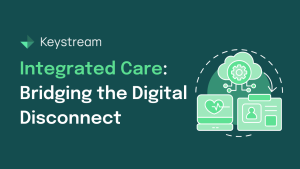18.07.2024
Reassessing Cybersecurity: Strengthening the NHS for the Future
The recent ransomware attack on Synnovis has spotlighted critical gaps in NHS cybersecurity, driving a surge in demand for skilled Digital, Data, and Technology (DDaT) professionals. This incident has highlighted the need for robust cybersecurity measures, the acceleration of digital transformation within healthcare, and the urgency of safeguarding patient data.
The Urgency of Cybersecurity
The attack disrupted thousands of NHS procedures, exposing vulnerabilities in outdated IT systems, insufficient cybersecurity protocols, and a lack of preparedness for cyber threats. This crisis highlights the urgent need for comprehensive strategies to protect patient data and ensure service continuity.
Digital Transformation and Data Protection
In response, NHS leaders are fast-tracking digital transformation efforts and reinforcing data protection. Integrating advanced technologies can enhance patient care and efficiency, but it must be paired with strong cybersecurity frameworks to safeguard sensitive information.
Rising Demand for DDaT Professionals
The need for DDaT professionals is skyrocketing, with roles like cybersecurity experts, data analysts, IT infrastructure specialists, and digital transformation leaders becoming essential, not just in the public sector but across all industries. These professionals are crucial in identifying vulnerabilities, implementing security measures, and fostering a culture of digital resilience.
Government Response
Governments and industry leaders are stepping up to bolster NHS cybersecurity. Initiatives include policy reforms, increased funding for cybersecurity, and collaborations with cybersecurity firms. These efforts aim to provide immediate fixes and build long-term resilience against future cyber threats.
Future Skills and Roles in High Demand
Looking ahead, the demand for skilled DDaT professionals will continue to grow. Beyond technical expertise, professionals with strategic insight and interdisciplinary skills will be key. Roles like cybersecurity resilience managers, data protection officers, and digital healthcare architects will shape the future of healthcare cybersecurity.
Conclusion: Securing Healthcare’s Digital Future
The Synnovis attack has catalysed a renewed focus on enhancing digital resilience and protecting patient data within the NHS. Investing in skilled DDaT professionals and fostering a culture of cybersecurity awareness are crucial steps. Embracing digital transformation and robust cybersecurity practices will be pivotal in securing healthcare’s digital future.









